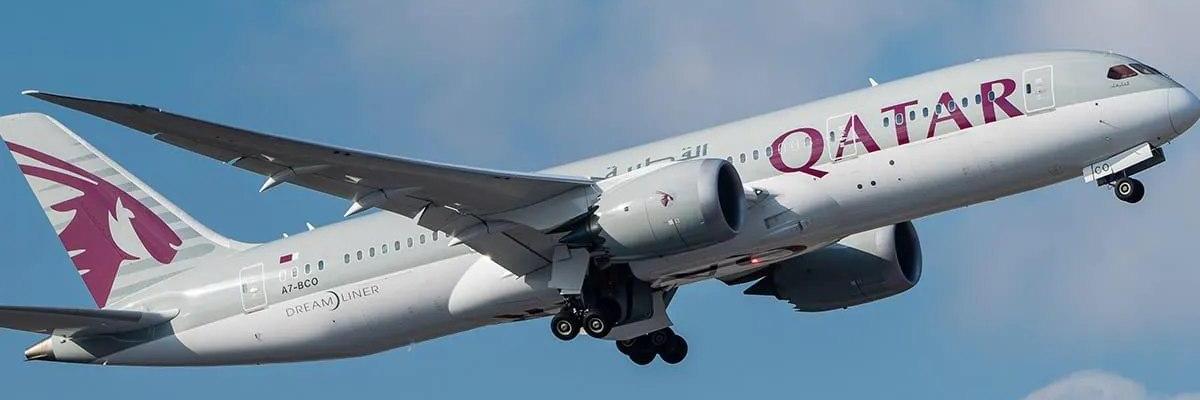Become a member
Get the latest research, news & events on topics and regions that interest you.
Register



Since the 2015 Paris Agreement and the landmark decision to limit the increase in global temperature to 2 °C compared to pre-industrial levels by the end of the century, reductions of carbon emissions and overall decarbonisation have been at the top of the global agenda. Through decarbonisation, governments aim to establish a global low-carbon economy and achieve climate neutrality through the transition to cleaner energy sources.
Achieving decarbonisation entails a transformative shift in the global energy system towards alternative energy sources. Realising alternative energy sources in a number of industries is proving problematic, in particular in the transportation industries, including aviation. One of the key strategies to accelerate the green transition in this industry lies in making sustainable fuels more accessible to airline companies.
Qatar Airways announced on 31 May it had signed a deal with British-Dutch energy giant Shell for the procurement of 3000 tonnes of sustainable aviation fuel (SAF) for its operations at Amsterdam Schiphol airport. At present, SAF is primarily composed of biomass feedstocks (e.g., forestry and agricultural waste, cooking oil) and generates up to 80% fewer carbon emissions throughout its lifecycle compared to conventional jet fuels.
This particular agreement expands on an existing jet fuel contract between Qatar Airways and Shell. Under the new deal, Qatar Airways will incorporate a minimum of 5 per cent of SAF into its operations during the fiscal year 2023-2024. As a result, the airline expects to reduce its carbon dioxide emissions by approximately 7,500 tonnes for that fiscal year on flights originating from Amsterdam.
The landmark deal, the first of this kind for a Gulf carrier was signed in the framework of the broader sustainable fuel initiative led by the One World Alliance, of which Qatar Airways is a member, whose goal is to ensure SAF accounts for 10 per cent of combined fuel volumes by 2030.
Qatar Airways group chief executive Akbar Al Baker said in the press release published by the company - “We are placing a multimillion US dollar SAF deal in Amsterdam to illustrate our SAF commitment and reiterate our calls for a more robust SAF supply chain across our global network. (…) SAF is still 3 to 5 times more expensive than fossil-based jet fuel. This is why it is essential for all stakeholders to play their part in facilitating research and development of SAF facilities, enhancing economies of scale, providing financing and placing supportive policies.”
Saudi Arabia also announced in early 2023 that it had partnered with AviLease, an aircraft lessor established by the Public Investment Fund in Riyadh in July 2022, to launch the production and distribution of SAF to AviLease’s growing network, an initiative that aligns with the objectives of the Kingdom’s Vision 2030. In May 2023, Emirates Airlines announced that it was to launch a USD 200 million fund that will focus on R&D initiatives to reduce the use of fossil fuels in the aviation industry. “We are ring-fencing USD 200 million to invest in advanced fuel and energy solutions for aviation, which is where airlines currently face the biggest impediment in reducing our environmental impact,” Tim Clark, President of Emirates, said.
The EU institutions are also pushing for a greener aviation industry. In April 2023, the Council and the European Parliament reached a preliminary agreement on the ReFuelEU aviation initiative, which aims to decarbonise aviation, promote sustainable air transport by boosting the demand for and availability of SAF, and ensure fair competition throughout the EU’s air transport market. By addressing supply challenges and costs, it aims to facilitate SAF development and provide a viable solution to the long-term decarbonisation of the industry.

Get the latest research, news & events on topics and regions that interest you.
RegisterAlready a member ? Log in
Privacy PolicyGet the latest research, news & events on topics and regions that interest you.
Not a member ? Subscribe
Get the latest research, news & events on topics and regions that interest you.
Alreday a member ? Log in
Privacy PolicyEnter your email below to recover your password
Thank you, you will receive an email to change your password
Your password is now updated